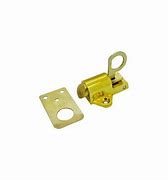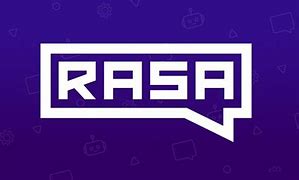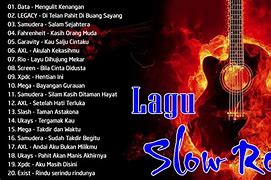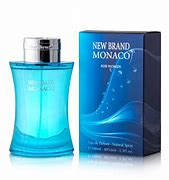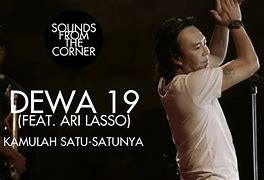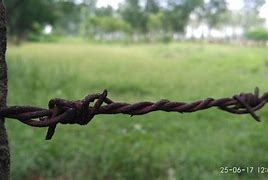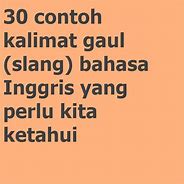
Slang Words Bahasa Inggris yang Berfungsi Sebagai Kata Kerja (Verb)
Kalau kamu ingin menungkapkan suatu aktivitas pakai bahasa yang gaul tapi nggak pasaran, kayaknya beberapa slang bahasa Inggris di bawah ini bisa kamu coba! Kuy, langsung praktikkan ke temanmu!
107. High key: Tegas atau jelas, tidak sembunyi-sembunyi. 108. Cross out: Mencoret. 109. Face to face: Berhadapan. 110. Keep dark: Merahasiakan. 111. Dish out: Membagi-bagikan. 112. Gimme five: Tos. 113. Give a hand: Menolong. 114. Catch flies: Menganga, mangap. 115. Catch someone red-handed: Menangkap basah seseorang. 116. Have a punch up with someone: Berkelahi dengan seseorang. 117. Hit the road: Meninggalkan rumah. 118. Clap Hands: Tepuk tangan. 119. Try on: Coba pakai (u/ pakaian). 120. Pick out: Memilih. 121. Point out: Menunjukkan. 122. Put off: Menunda. 123. Keep dark: Merahasiakan.
Ciri atau Karakteristik Slang Bahasa Inggris (Slang Words)
Nah, kata slang umumnya dipakai dalam konteks candaan bahkan sindiran. Selain itu, makna dari slang words dapat berubah seiring dengan berkembangnya zaman.
Lebih lanjut lagi, slang words sifatnya nggak jauh berbeda dengan idiom bahasa Inggris atau proverbs, yang mana biasanya memiliki arti atau makna yang berbeda dari yang seharusnya.
Mungkin banyak vocab atau istilah slang words bahasa Inggris yang sudah kamu ketahui melalui media sosial. Di artikel ini, English Academy akan memberikan tambahan kosakata slang words untukmu, nih. Lengkap sama artinya! Simak, yuk!
Baca Juga: 101 Idioms yang Tidak Bisa Diterjemahkan Secara Harfiah
Slang Words Bahasa Inggris untuk Mengobrol dengan Teman dan Artinya
Slang bahasa Inggris di bawah ini bisa kamu gunakan saat mengobrol dengan teman atau sahabatmu, gengs. Jadi, obrolanmu bisa semakin asik dan nggak terlalu kaku. Intip, yuk!
38. Don’t mess up with me: Jangan main-main denganku. 39. Just drop it: Lupakan saja. 40. On purpose: Sengaja. 41. Don’t screw: Jangan mengacaukannya. 42. No matter: Tidak peduli. 43. It’s a wrap: Sudah selesai. 44. Blow me: Bikin aku terkesan. 45. Arm in arm: Bergandengan. 46. Buck up: Tersenyumlah. 47. Your six: Di belakangmu. 48. Gotta run: Harus pergi. 49. Any road: Plesetan dari anyway, artinya sama, yaitu “ngomong-ngomong”. 50. Above all: Yang terpenting. 51. What’s with you?: Ada apa? 52. What’s up: Ada apa? 53. Get my drift?: Paham maksudnya? 54. Get out of it/get outta it/drop it: Sudah lupakan saja. 55. Get off my back: Sudahlah jangan menggangguku. 56. I catch up to you: Nanti aku menyusul. 57. I’ll keep my fingers crossed: Saya akan doakan. 58. Fortnight: Dua mingguan. 59. Hasta lavista, baby: Selamat tinggal sayang. 60. You gotta kick the habbit: Kamu harus menghentikan kebiasaan itu. 61. What’s got into ya? : Ada apa denganmu? 62. Take it easy: Santai saja. 63. Spit it out: Cepat katakanlah. 64. Snap out of it : Sadarlah. 65. Must have got up on the wrong side of bed: Mimpi apa semalam? 66. Nice one: Ungkapan sinis terhadap pekerjaan yang salah. 67. It’s piece of cake : Ini gampang sekali. 68. Give me/Gimme : Beri saya/kasih saya. 69. It has really pissed me out/get on my case : Benar-benar menjengkelkan. 70. Vibe check: Apa kabar?/Bagaimana keadaanmu?
Contoh penggunaan slang bahasa Inggris di percakapan
Jika sudah mengetahui tentang english slang word maka bagaimana sih jadinya kalau slang word ini kita sisipkan dalam percakapan bahasa Inggris?
Kita coba dengan memahami beberapa contoh berikut ini
I’am sorry OOT, but how if we go to school right now?
His conversation is out of topic, but okay i don’t mind.
I was trying 24/7, but i can’t make it good
You is my only best friends who make me happy 24/7
Their performance, blow me up really hard
Please blow me up with your dress
Hai buddy, you look good today
It’s okay buddy, don’t much worry
Don’t be salty, you are good enough
Itulah beberapa slang bahasa inggris yang biasa digunakan di percakapan informal baik secara langsung maupun di sosial media.
Kamu bisa menggunakan beberapa contoh slang bahasa Inggris di atas sebagai referensi dalam percakapan bersama native speaker.
Baca juga : Belajar 15+ Slang ini, Biar Makin Gaul di Jepang!
Region specific slang
Medan is the capital of North Sumatra Province. Most of the slang from Medan are heavily influenced by Malay, Hokkien and Karo language. For example, "bapa" for "father", "nande" for "mother", "kedé" for "shop", "tutup lampu" for "turn off the light", "buka radio" for "turn on the radio". Another example of Medan slang is by adding "punya" at the end of the sentence. For example, "mobil aku punya" for "my car". They also have the tendency to confuse between e /ə/ and é /e/, partially due to the fact that most of nearby Batak languages lack the former vowel, the schwa.
Slang Bahasa Inggris dan Artinya
Berikut Lister rangkumkan 50 slang bahasa Inggris beserta dengan artinya. Semoga bisa digunakan sebagai referensi kamu dalam percakapan bahasa Inggris ya!
1. Slang bahasa Inggris umum
2. Slang bahasa Inggri untuk memuji dan artinya
3. Slang kasar dan artinya dalam kehidupan
4. Slang dalam dunia kerja
5. Slang singkatan bahasa Inggris
Apa Saja Slang Words/Slang Bahasa Inggris?
Slang bahasa Inggris cukup banyak. Contohnya yang saat ini sering muncul di media sosial adalah slay yang artinya memiliki penampilan bagus, rapi, atau menakjubkan. Sebetulnya itu bukan makna asli.
Jika kamu membukanya pada beberapa kamus bahasa Inggris, tak menutup kemungkinan kamu akan menemukan kata slay dengan arti membunuh. Ini dia contoh-contoh slang words lain dalam bahasa Inggris!
Apa Itu Slang Words/Slang Bahasa Inggris?
Jadi, slang bahasa Inggris diartikan sebagai bahasa gaul dalam bahasa Inggris. Tapi, konteksnya tentu berbeda dengan istilah gaul Jaksel. Soalnya, istilah Jaksel dianggap gaul karena sering dijadikan sebagai selingan saat berbicara dalam bahasa Indonesia.
Sementara itu, seperti yang sudah dispill sebelumnya, slang words adalah kata-kata atau istilah gaul yang sudah menjadi budaya atau kebiasaan dalam percakapan sehari-hari para native speaker.
Dalam hal ini, native speaker bisa berarti merujuk pada kiblat American English atau British English. Singkatnya, sih, yang sering digunakan para bule saat mengobrol di negara asalnya.
Jambi & Palembang slang
Jambi and Palembang slang mostly involves changing the letter at the end of the word with letter 'o'. However, not all words can be modified to include the characteristic 'o', as this rule applies mostly to words ending with the letter 'a'. Sometimes Palembang use shorter-version of word by erase first syllables, like 'segala' in standard Malay-Indonesian to 'galo'.
Another characteristic pattern of Jambi and Palembang slang involves the addition or replacement of the final letter of a word with 'k'.
Another classic Malay Sumatran dialect also prevailed in most of Sumatran cities, from Palembang to Bengkulu, Jambi and Pekanbaru. These classical Malay words such as nian is used in Sumatran cities instead of sangat or banget (very).
Jakarta including Botabek is the capital city of Indonesia with a population of more than 20 million people. Consequently, such a huge population will undoubtedly have a role in the Jakarta slang evolution. Much of the slang evolved from the Betawi dialect.
Some prominent examples:
The following words are taken from Hokkien (Fukkien) Chinese, and commonly used in transactions.
However, many Indonesians of non-Chinese descent do not know the meaning of the transaction words above, probably with the exception of Goceng due to its usage on KFC Indonesia's advertising on their "Goceng" products, in which all "Goceng" menus are sold at the IDR 5000 price range. Sometimes the word "perak", literally "silver", is used to describe small denominations of currency.
This slang is a code mixing between Indonesian and English. It is named after South Jakarta. Some iconic English words used in this slang include which is, like, literally, sometimes, basically, and some Indonesian words + -ly exp (jujurly). Code mixing with English does not only occur in Jakarta, but also in other major cities in Indonesia.[57]
Negative sentiments on this slang caused this given the name "fart language" (Indonesian: bahasa kentut) by some.[58][59]
In the West Java and Banten region, the main place for Sundanese speakers, there are several words or phrases belonging to the slang language. This diversity of slang has its own peculiarities in each region in West Java Province.
Bandung is the capital city of West Java province with a predominantly Sundanese culture. The Sundanese language has three levels or forms, namely: high (polite), middle class, and low (impolite). Bandung slang often uses the Low Sundanese pronouns along with the many other Sundanese translations of popular Indonesian.
Bogor is a city in the province of West Java with the former Kingdom of Sunda Padjajaran, Bogor slang is Sundanese with its influence from Indonesian language and sometimes uses Sundanese with the word pronounced backwards.
Sukabumi slang the language is a non-standard variety of Sundanese language that is often used in Sukabumi, West Java in the Tipar area, because Widal itself means Tipar.
This Sani or Widal language can also be called slang or slang in the Sundanese dialect, where the pronunciation of the letters in the consonants changes.
For example, the letter G becomes S, J becomes C, and 'ng' becomes 'ny' and so on.
These slangs are shared across Central Java and Yogyakarta where Javanese is predominantly spoken. Like Sundanese which are spoken in Bandung, Javanese also has 3 different set of vocabularies, based on the politeness level. Common people usually talk with a mix between low-Javanese, middle-Javanese, and Indonesian. Some non-Javanese residents added their own dialects to the pot, resulting what is called the Central Java slang
Jogjakarta slang is also known as Basa Walikan, literally means 'Reverse Language' [1].
It is a transformation of Javanese, in which Javanese consonants are switched with one another, as shown below:
With the above rules, the expletive expression Matamu! (which literally means: 'Your Eyes!') becomes Dagadu! (also the name of a clothing brand). The following website automatically performs this transformation: Walikan Translator
Malang slang is inverted alphabetical word (mostly from Javanese and little bit from Indonesian). Commonly known in Javanese as Boso Walikan Malang (Reversed: Osob Kiwalan Ngalam.[60] Meaning: Malang's Reversed language). The slang started appearing sometime in 1949 when the people at Malang's Gerilya Rakyat Kota (GRK meaning City People's Guerilla) needed a form of communication method that is unknown to the occupying Dutch intelligence (Both to the Dutchman, and the recruited natives) while maintaining typical daily conversation. Thus, the idea to reverse Javanese and Indonesian words was born. The goal of the creation of the language is to maintain plan secrecy, prevent leakage of information, and to confuse the enemy.[61] At First, the language was only known amongst the guerillas. Further adding the language's purpose as an identifier whether that person is a friend or foe. But after the Dutch retreated from the city, the language remained and becoming more widespread amongst the people of Malang and its surroundings. In recent years, the technique of reversing words has become more popular nationwide and played a role in creating modern Indonesian slang. Words such as Ngab (From: Abang meaning 'Older Brother'), Sabi (From: Bisa meaning 'Be able to..' or 'Can') or Kuy (From: Yuk meaning 'Let's go') owes credit to Malang's Reversed Language.
Sam = Mas (Older brother. Javanese version of 'Abang' or 'Bang')
Ongis Nade= Singo Edan (the nickname of Arema Cronus F.C.)
Helum= Muleh (Go home)
Ojob= Bojo (Husband/Wife)
Rajajowas= Sawojajar (an area in Malang)
Kera Ngalam= Arek Malang (lit. The kid of Malang. Referring to The People of Malang)
Nawak Ewed = Kawan Dewe (Your own Friend/s)
Silup= Pulis (Police (Although the Javanese word for police is the same as in Indonesian, Polisi. they altered the word slightly to make it less obvious))
As the second largest city in Indonesia and the capital of East Java, Surabaya uses a rougher dialect of Javanese and has a fairly complete list of its own slang. Javanese language originated from the Central Javanese farmland and by the time it reached the coastal area of East Java, it changed from its original polite form into a more impolite version with the creation or further adaptation of many new 'Javanese-style' words and swearwords. One of the most notable Surabaya slang is the word Jancok.
Pontianak slang is influenced by Malay, Teochew and Dayak and sometimes combined with Hakka. It is spoken in the Malay dialect. These slang varieties are spoken throughout West Kalimantan.
Makassarese slang is highly influenced by the native Makassarese dialect and sometimes combined with Chinese accents. The slang, in the end, sounds more informal and 'rude', as going with the tough image of Makassarese people. The possessive word for you (kamu) has three degrees of politeness: -ta (very formal and respectful), -mu (neutral), and -nu (informal). For example:
Meanwhile, the word for you itself is divided into two, the formal ki and the informal ko.
Ini mi? -> 'This one?' Biarkan mi -> 'Let it go' Ko sudah belajar mi? -> 'Have you studied?'. Ko derives from the informal Indonesian word Kau, which stands for 'you'. Sudah dimulaimi itu ulangan? -> 'Has the exam started?', literally, 'Has-been started-the exam?'
Ji is also often used in the end of words. Most often, it means 'only', or used to give a more assuring tone to a sentence.
Di functions more like a question tag, read with a glottal stop at the end, which makes it to be 'dik'
Aside from that, Makassarese more often speak with a heavier accent, mixing many of the Indonesian words with native Makassar words.
Slang bahasa Inggris bisa juga dikatakan sebagai bahasa gaul Inggris. Slang words ini cukup umum digunakan dalam komunikasi sehari-hari bahasa Inggris
Lister sudah kumpulkan 150 Contoh slang for words bahasa Inggris beserta artinya untuk referensi kamu! Kamu juga bisa memaksimalkan kemampuan bahasa Inggris dengan mengikuti kursus bahasa Inggris dari Lister!
Waktu yang tepat menggunakan slang bahasa Inggris
Seperti yang kita tuliskan di atas, slang words adalah bahasa informal sehingga penggunaannya lebih cocok digunakan untuk keadaan yang santai.
Kamu bisa menggunakan slang word untuk beberapa keadaan diantaranya percakapan dengan teman dekat dan sahabat dan juga percakapan maupun postingan di sosial media.
Tidak dianjurkan penggunaan slang words ini digunakan untuk lingkup formal misalnya di lingkungan akademis (sekolah, workshop, lembaga pembelajaran, kursus dan lainnya), bisnis, rapat dan juga percakapan kepada orang asing.
Jadi penting untuk menyesuaikan waktu dan keadaan untuk menggunakan slang word ini ya!
Baca juga : Apa itu Lowkey? Bahasa Slang Inggris yang Sering Digunakan
